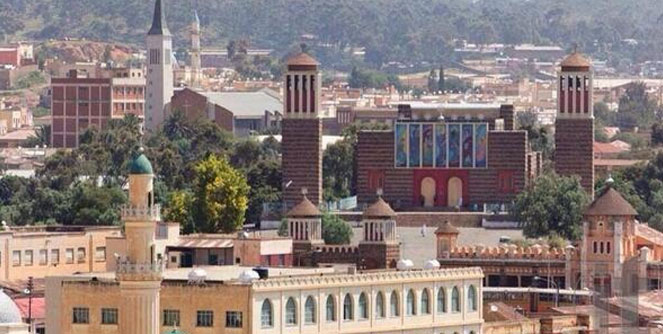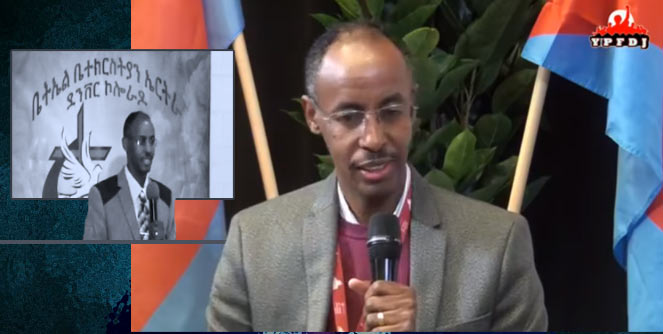Towards a Mature and Meaningful Exchange!

Open exchange of ideas and perspectives is the foundation of a healthy, vibrant and tolerant society. Societies that promote open exchange are more likely to foster common understanding, a better appreciation of other perspectives and welcome creative and critical thinking. The effectiveness of any exchange in a society will depend, among other things, on how it is navigated and how it is construed. Society’s level of maturity and civility can be measured, not only by the extent and openness of its exchange but also by the civility and soundness of the exchange. The social media has provided unprecedented avenues for open exchange. As it stands, there is no shortage of exchange at our time, but, certainly, there is a lot to be desired when it comes to quality and content.
Within the Eritrean global community, there are multiple avenues for exchange such as websites, YouTube, chat groups, Whatsapp and many others. Surely, the exchanges that take place within these mediums provide useful insights and a better understanding of issues of common concern and interest. However, there are some observable pitfalls within much of the exchanges that take place that deserve to be noted and rectified. The following four are among some of the most observable pitfalls:
- Failure to see issues within their relevant social and historical context.
- Addressing complex issues superficially, without taking the time to investigate and analyze.
- Making sweeping generalizations and failing to consider the divergent group dynamics.
- Cherry-picking facts to advance certain narratives and positions.
To illustrate the point, the following two events occurring within the last 12 month will be deciphered and discussed further.
The “Sharia” scare:
In the speech delivered by Hajj Mussa Mohamed Nour in the Al-Diya school in Asmara in October 2017, he made reference to the Islamic term “Sharia”. The term was, reportedly, used in the context where he said we want to follow our “sharia”. In the discussions following the widespread circulation of his recorded speech, his use of the term “Sharia” created some uneasy discussions within the social media. Some saw it as an “outlandish” term with worrying connotations, others tried to associate it with “Wahabism” and “radical fundamentalism”. Fortunately, the discussion was of a limited scope, but the fact that the usage of the term sounded “outlandish” and fearful is troubling at two levels:
- a) Contextual level: If the usage of the term “Sharia” was to generate fearful discussions in the Western context it wouldn’t be surprising. Given its mostly Judeo-Christian tradition, the term is alien to the West and is generally viewed within the post-September 11 negative sentiments about Islam and Muslims. However, Eritrea has a different historical and social context. With its deeply rooted mostly Christian-Islamic tradition, Eritrea’s experience with “Sharia” is entirely different. One of the oldest and most sophisticated courts in Eritrea was the court of Massawa. This court had far-reaching jurisdictions and it was a “sharia” based court. Similarly, the local customs and arbitration norms among Eritrean Muslim tribes were based on “Sharia”. Some of these “Sharia” based local customs were formally codified in the 1940s and 1950s. Included among them we find, the “Customary law for Muslims of ‘Akeleguzai’”, which included 191 articles; the “Customary law for Muslims of ‘Seray’’, which included 218 articles; and the “Customary law for the Muslims of ‘Sahel’”, which included 198 articles[i]. Even today, the “Sharia” based courts are part of the legal system in Eritrea. Accordingly, “Sharia” within the Eritrean historical context has a different place and connotation. It was part and parcel, not only of the legal traditions of Eritrea but also part of its multifaceted social fabric. Failing to take into account the Eritrean historical context and seeing things through the Western context or through the disgraced models of ISIS or Taliban would be a grave contextual error. Perhaps this is another manifestation of what I have referred to in my earlier article as the “Intellectual gap”[ii]. Eritrean issues need to be seen and understood within the broader Eritrean context, particularly its distinctive historical and social experiences.
- b) Factual level: The term “Sharia” is an Arabic term which literally means “path to the water hole” and it is a term derived from the Quran (45:18). In Islamic scholarship, it has two usages: a broader and a specific usage. Broadly speaking it is synonymous with Islam. So, if one was to say I follow Islam or I follow “Sharia” that would mean the same. Specifically, it is used to refer to the Islamic transactional law; which is the most common usage. As noted by Khaled Abou El Fadl (The Great Theft, 2005) “Sharia” with its extensive legal delineations, is one of the most elaborate and sophisticated legal systems in the world. Muslims are not monolithic in their interpretation of the “Sharia”. There are those who interpret the “Sharia” text literally (Zahiri), others who go beyond the text to the objectives (Maqasidi); in addition to conservatives and reform-minded. Ibn Al-Qayyim, a jurist of the 13th century, summarizes the essence of what “sharia” is in four foundational concepts: compassion (Rahma), justice (Adl), Social welfare (Masllah) and Wisdom (Hikma). He further notes that any injunction that contradicts any of these four wouldn’t be part of “Sharia”[iii].
Obviously, the purpose of my discussion here isn’t to analyze the intricacies of “Sharia” and its applications, rather it is to highlight the complexity of the subject matter and the error committed by making some superficial assertions. Reducing the “Sharia” to the malpractices of some extremists or the insinuations of some Islamophobics is far from any objective discourse. Issues need to be discussed first and foremost within their context, but also within the required level of sophistication and proficiency.
Pastor’s perceived threat:
Last April, in a conference held in Oslo by an Evangelical Eritrean and Ethiopian Church, a pastor made certain controversial remarks and prayers. The pastor reportedly said, “our forefathers chose to unite with Ethiopia so as not to be dominated by Muslims”. He went further to name the Muslim majority countries surrounding Ethiopia and calling on God to protect Christians. The video clip of his remarks and prayers was widely shared in the social media. Some of its content was translated from Tigrinya and Amharic to the Arabic language. There was widespread condemnation to the pastor’s remarks and prayers.
Certainly, the words of the pastor were unwise and perhaps they are a reflection of what author, Semere Habtemariam, called in his recent publication “Siege mentality” (Reflections on the History of the Abyssinian Orthodox Church, 2017). The pastor is entitled to his opinions, his critics are also within their full right to respond and condemn. However, some of the responses, particularly within the Eritrean Arabic social media, were failing in two ways:
- a) Generalizations: The words of the pastor were given by some a much bigger meaning and were portrayed as a broadly shared Christian sentiment. There were some suggestions that these comments were a sign of new creeping “Andinet” movement. Further, the pastor’s remarks were seen in conjunction with the diatribes of another Eritrean “Muslim basher” residing in the UK, as evidence of a wider Christian assault.
Naturally, within every segment of society, there will always be individuals or smaller groups that carry narrow exclusivist views. However, projecting the views and actions of marginal groups to the whole faith group is stereotypical and deadly wrong. Deciphering what is being said and who said it is critical. The fact that a “pastor” or a “sheikh” has a certain religious authority or some followers, doesn’t justify taking their words and projecting them to the whole faith. These kinds of generalization are not only wrong, but they undermine healthy and meaningful exchanges. The pastor’s remarks should have been taken for what they are, his opinions and the opinion of those who follow him.
- b) Selectivity: The pastor’s remarks were condemned by many Eritrean Christians. Ironically, those condemnation weren’t as widely shared, nor were they translated into Arabic. This selectivity in fully sharing what transpired creates a skewed and biased stereotypical view. The social media has a tendency to pick quickly on sensational controversies and ignoring balanced counter-responses. This is becoming an increasingly challenging reality.
In 2010, Terry Jones, an American pastor of Dove World Outreach Center, made a bizarre announcement of his plan to publically burn the Quran. His announcement was widely reported and created huge upheavals across the world, leading to riots and loss of life. He was seen, by some, as a new Christian crusader representing Christian America. But what wasn’t widely reported is the fact that the pastor represented an obscure small fringe group, the fact that he was roundly condemned by major Christian and Jewish denominations, the mayor of his own town and president Obama who described his planned actions as “completely contrary to our values as Americans”.
The pastor’s remarks in the Oslo conference were loud but marginal; they shouldn’t have received the kind of attention they did. But to be fair, the responses of his critic should have also been widely spread as well. Selective sharing of information is and will be a major challenge and every effort need to be made to ensure we are not victims of one-sided views of what truly transpires in our surrounding.
Eritreans have a long shared history, with common values and deeply rooted traditions. These values should continue to serve as anchors to all of their exchanges and collective endeavours. When shared history and common values are forgotten, the peripheral voices of sectarianism, narrow tribalism and prejudiced factionalism take center stage.
In conclusion, the wise words of Dr. John Esposito are worth noting, he said: “All of us are challenged to move beyond stereotypes, historical grievances, and religious differences, to recognize our shared values as well as interests, and move collectively to build our common future” (Unholy War, 2002).
[i] See: mukhtar.ca ((مقالات: العرف في الإسلام
[ii] https://awate.com/bridging-the-intellectual-gap/
[iii] إعلام الموقعين عن رب العالمين، ابن قيم الجوزية




Awate Forum